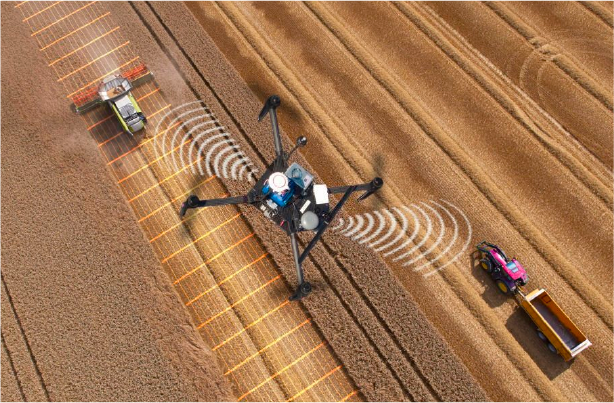
Agribusiness
Whether it’s a dystopian future plagued by mass unemployment due to automation or a surge in productivity birthed by advancement in artificial intelligence, there are a number of expectations for the future. One thing is for sure, AI and technology are driving the “fourth agricultural revolution”
It’s imperative that we assess both the pros and cons of the impact of technology on agriculture before the revolution.
The first agricultural revolution occurred 12,000 years ago with the second occurring in the 17th century when reorganization of farmland began. The third agricultural revolution also known as the green evolution took place between the 1950s and 1960 and was characterized by chemical fertilizers, pesticides, new high-yield crops and heavy machinery.
The fourth agricultural revolution will be marked by the anticipated changed in the use of technology, while minimising environmental degradation.
Robotic milking of cows provides a good example, which has improved work-life balance for cattle farmers and even allowed disabled farm workers to avoid dextrous tasks on the farm. This however created a new challenge in the form of information overload and the perception that the farmer needs to monitor information round-the-clock.
These advancements which will reduce the physical stress associated with farming is believed to attract skilled entrants into farming which was largely characterised by an aging workforce.
There’s however the risk of existing farm workers being replaced by these technological strides which will with time result in some resistance from these individuals.
While some farmers are optimistic about a high-tech future, others wonder whether those with less capital, poor broadband availability and IT skills, and access to advice on how to use the technology will benefit from it.
History has proven that technology companies and larger farm businesses are often the winners of this kind of change. There will be an over reliance on these larger companies by smaller family owned farms which do not have access to increasingly important and complex equipment, when the fourth agricultural revolution takes place.
There’s no guarantee technology will always be embraced, and this is evident with the controversy surrounding GM crops. There’s therefore the need for a society-wide identification of both benefits and disadvantages of new agricultural technology that might occur in order to mitigate any potential resistance.
So as exciting as the fourth agricultural revolutionary may be, there’s some concern around it. It is therefore important that we discuss our concerns with as much vigour as we do the exciting aspects of it.
